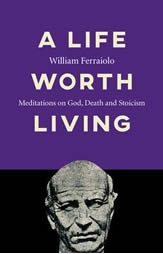Therapy with a Coaching Edge
Lynn Grodzki’s new book, Therapy with a Coaching Edge, guides professionals who are interested in a model of therapy that incorporates a coaching approach. She begins with a description of the basic model, which is comparable to a combination of traditional psychotherapy and life coaching. She then explores a set of nine specific coaching skills, including asking motivating questions and being more reactive. Grodzki has designed the book to be flexible and suitable for people with varying interests so that professionals can either adopt the complete model or select the concepts and skills that appeal to them the most.
8 Keys to Mental Health Through Exercise
With support from current empirical literature on exercise, Dr. Christina G. Hibbert makes a compelling argument for how and why exercise is medicinal for mental health. This knowledge is often not enough to motivate us to change, yet Dr. Hibbert works through the process of change with an array of exercises and reflection questions that ease even the most ambivalent reader into the process.
Other Than Mother
Kamalamani invites you to join her in celebrating the arrival of her newly-born book, Other Than Mother: Choosing Childlessness with Life in Mind, at her book launch, April 15, 2016 in Bristol, UK. Readers' comments include: "a truly beautiful book," "touching on issues close to the heart", "a timely, compassionate, skillful guide."
Why Therapy Works: Using Our Minds to Change Our Brains
With remarkable candor, Louis Cozolino opens with an anecdote about the client who first challenged his unquestioning faith in psychotherapeutic efficacy and shook his confidence as a clinician. Needless to say, psychotherapy is in the business of dealing with the intangible, making sense of the amorphous feelings that give rise to suffering, and, thus, this story perfectly captures the doubt that often dispirits both clients and clinicians in the healing process.
Sex Addiction As Affect Dysregulation: A Neurobiologically Informed Holistic Treatment
Alexandra Katehakis’ book dives into the foundations of sex addiction and the best possible treatment of it through a neurobiological lense. Informed by her own experiences and therapeutic journey as well as her work as a psychotherapist, Katehakis offers her own conception of an approach to treatment called Psychobiological Approach to Sex Addiction Treatment (PASAT). PASAT combines “cognitive-behavioral containment of addiction, transpersonal psychology expanding the self beyond the individual, and emotionally regulating, intuitive, and relation-based psychotherapy informed by affective neuroscience” (4). The target audience is mainly psychotherapists as the book hones in on PASAT and how to utilize it, but it can also be appreciated by those dealing with sex addiction, whether they’re in recovery or not. Through Katehakis’ detailed examination of sex addiction as a legitimate disorder and her resulting treatment plan, it is clear that she is deeply passionate and knowledgeable about the subject.
The book opens with a foreword by Allan N. Schore followed by Katehakis’s introduction where she touches on her journey to becoming a psychotherapist and provides an overview of the book. She describes a deeply traumatic experience of her own that drew me in. My attention was captured by her explanation of her personal connection to psychotherapy; it humanizes her and serves as a way to broach the topic of psychotherapeutic treatment.
Meeting the Needs of Parents Pregnant and Parenting after a Loss
Meeting the Needs of Parents Pregnant and Parenting After Perinatal Loss offers a supportive framework that integrates continuing bonds and attachment theories to support prenatal parenting at each stage of pregnancy. Giving insight into how a parent’s world view of a pregnancy may have changed following a loss, readers are provided with tools to assist parents as they explore pregnancy (conception, gestation, labor and birth) once again.
Easy Ego State Interventions: Strategies for Working with Parts
Ever wonder why a fight with your significant other deteriorates into a middle school shouting match? Or why a contentious conversation with a parent throws you into a temper tantrum? Chances are you are experiencing reality in one of many different ego states.
Everyday Evils: A Psychoanalytic View of Evil and Morality
Everyday Evils is fascinating for its breadth of analysis across several different schools of thought in psychology and for the grasp of understanding of history, ethics, and the intersections of various fields of study.
Why Love Matters
Sue Gerhardt’s book aims to reconcile the growing disparity between public and professional knowledge of the new developments in cognitive and behavioral neuroscience, as well as social developmental, and personality psychology that pertain to early infant development and beyond.














